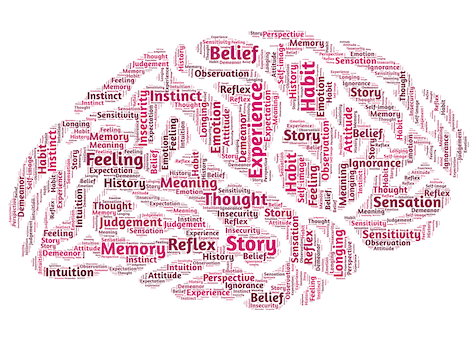Think of a colleague or supervisor at work who drives you crazy. Take three minutes to describe the most recent thing they did that made you go a little nuts — write it down. Then, write down why they did what they did and what it was like for you — how did it impact your attitude or a project you were working on? What kind of chaos or uncertainty did it create?
When you finish, you will have recounted a story that is a blend of fact and interpretation of fact. For example:
Ashley’s supervisor regularly arrives late for meetings with her. He does not listen closely to her ideas and he passed her over for the most recent department promotion. Ashley writes that he’s more concerned about how he looks to the CEO than about getting great work done. He’s self-absorbed and only cares about how things effect him. In turn, this frustrates and angers Ashley. She shuts down and minimizes communicating and interacting with her supervisor.
Some of this is fact — Ashley’s supervisor regularly arrives late for meetings. But some of this story consists of Ashley’s internal assumptions and interpretation of the facts — that he only cares about how things effect him. Perhaps it is true. But what if it’s not? What if Ashley’s meeting comes on the heels of her supervisor’s regular meeting with the CEO — causing him to run late and be distracted thinking about what just happened at that meeting?
Become Mindful of Your Mindset
The combination of attitudes, beliefs, and assumptions about who we are and how the world works — our individualized interpretation of the facts — is our mindset.
“We all possess a deeply ingrained mindset,” said Maren Perry, president of Arden Coaching. “Think of your mindset as a filter, or pair of colored glasses through which you see the world and interpret its meaning. Our interpretations determine our experience of life. Since interpretations are made up by us, we can change them and have a different experience.”
As a seasoned executive coach, Perry believes strongly in partnering with her clients and starting with an exploration of their current and possible beliefs. What is their mindset? What aspect of their mindset is helping them? What aspect may be holding them back?
“It’s been said that we shape our mindset, and then, our mindset shapes us,” notes Perry. “With practice, we can change our mindset. Shifting our interpretations helps us create new approaches to our situation and discover new opportunities, open doors that we assume are closed, and help us make desired behavioral changes.”
Shift Your Experience of the World
Return to the narrative you wrote at the beginning and complete these last steps. In one column list the objective facts of your story. In another column separate and list your interpretation of the facts.
Now identify possible alternative interpretations for the facts you listed. Brainstorm five alternate interpretations that are more empowering for you — interpretations that you can do something about or act upon.
One of Ashley’s alternative interpretations about her boss not listening closely to her ideas was that she was offering her ideas when he was distracted and unable to focus on them. Her alternative interpretation was “bad timing” rather than “doesn’t care.” With that alternative in mind, instead of angrily shutting down, she sought other times and opportunities to discuss new ideas with her supervisor. As a result, she found him much more interested and receptive.
If there is something we would like to change in our lives or our careers we must also be willing to shift our mindsets. Now that you have an alternative set of interpretations, what will you do? Practice alternate interpretations — your evolving mindset. Act on them, then practice them more.
To learn more about how executive coaching can help shape your mindset to drive meaningful change and long-term results, contact Arden Coaching at info@ardencoaching.com or 646.684.3777.

